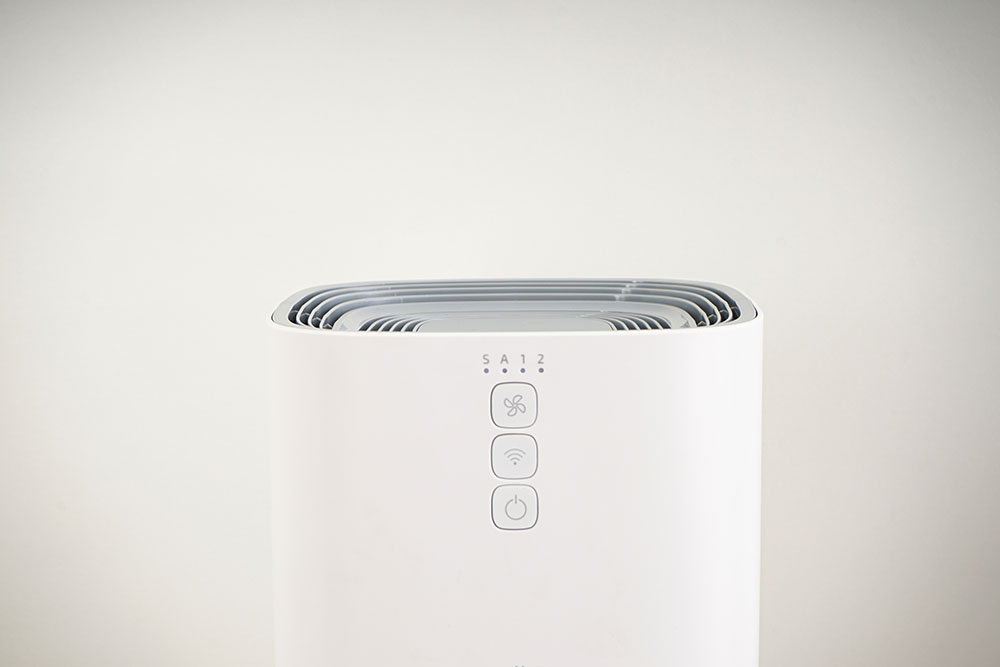Do Air Purifiers Remove Smoke Odours?

CONTENTS
- Understanding smoke odours and air quality
- The science of air purification technology
- Efficacy of air purifiers against smoke odours
- Types of smoke odours addressed by air purifiers
- Factors influencing air purifier performance
- Best practices for maximising air purifier efficiency
- Frequently asked questions
- Get in touch
The smell of cigarette smoke odours can cling to various surfaces of your home and embed into furniture like sofas and dining chairs. It is a difficult smell to eliminate, no matter how often you clean or redecorate your home.
At ICE Cleaning, our smoke odour removal services utilise modern technology that scrubs your air of pollutants and thirdhand smoke, targeting affected fabrics. We can find the root cause of the odour and help you prevent it from returning.
Read on to learn more about what makes smoke odour, why it is dangerous for indoor air quality, and whether an air purifier can help.
Understanding smoke odours and air quality
Smoke odours linger, infiltrating fabrics and inhabiting the air long after the source is extinguished. These odours stem from a complex mix of volatile organic compounds (VOCs) and particulate matter, which cause unpleasant smells and pose potential health risks.
The level of damage to indoor air quality is noteworthy, as fumes from smoke are microscopic, entering the lungs without protection against it. This means it is crucial to tackle these invasive scents head-on to maintain clean air within homes or businesses.
Air purifiers are somewhat effective against airborne contaminants. By employing advanced filtration systems, they capture fine particles associated with smoke odours, improving indoor air quality substantially.
The science of air purification technology
Air purifiers have become integral for those seeking cleaner indoor air, and the technology behind them is both fascinating and complex. HEPA filters can capture particles as small as 0.3 microns with a 99.97% efficiency rate.
There is also ionising technology, which releases charged ions into the air to latch onto contaminants. These then fall from suspension, making it easier for filters to trap them or for you to wipe them away.
Understanding each component’s role helps us appreciate how combined technologies work together in high-quality air purifiers like those found in recent studies, ensuring your home remains free from unwanted smoke smells.
Whilst air purifiers can alleviate some of the odours, if the smoke odours have settled into fabrics and other surfaces, professional cleaning is needed. This is the best way to ensure full decontamination of your property.
Efficacy of air purifiers against smoke odours
When cleaning the air, an air purifier's effectiveness differs with smoke odours. A room can quickly become unpleasant when filled with traces of tobacco or burned objects, requiring a quick fix.
A study published by the National Institutes of Health shows HEPA filters can effectively capture particulate matter from smoke. But, it is not just about particles – the smell is a gas issue and activated carbon filters can help.
The performance varies based on factors like filter quality and room size. But, combining HEPA and activated carbon technologies can alleviate the intensity of these odours.
Types of smoke odours addressed by air purifiers
When it comes to smoke odours, air purifiers are helpful for your home. They tackle various types, from tobacco smells to the pervasive odour of wildfires.
Tobacco smoke is notorious for its tenacity, seeping into fabrics and walls. Studies show that activated carbon filters in air purifiers can absorb these particles, significantly reducing the smell.
Cooking-related smoke might not stick around as long but can be just as pungent. Air purifiers can help, especially those with HEPA filters designed to capture fine particulates.
Lastly, wildfire smoke carries health risks due to its composition of harmful chemicals and particulate matter. Modern air purifiers can deal with air pollution by utilising HEPA and activated carbon technology.
Factors influencing air purifier performance
The efficiency of an air purifier in tackling smoke odours is not a simple answer. It largely depends on several critical factors, each playing its part in the purification process.
Room size and air changes per hour (ACH)
Firstly, consider room size against the Clean Air Delivery Rate (CADR) of your device. A higher CADR rating means more clean air is produced per minute – crucial for larger spaces to maintain freshness.
Equally important is the ACH or how often an air purifier can exchange all the air within a specific area per hour. Experts recommend at least 4-6 changes per hour for optimal results.
Type and quality of filters
HEPA filters excel at trapping particulate matter while activated carbon layers absorb odours, including those from smoke. However, they need regular replacements to keep working effectively.
Air purifier placement
Lastly, placement impacts performance; centrally located units facilitate better airflow than ones tucked away in corners.
Best practices for maximising air purifier efficiency
To tackle smoke odours head-on, placing your air purifier in the right spot is key. The ideal location is near the source of the smoke but not hidden away behind furniture or curtains where airflow is restricted.
However, even with strategic placement, an air purifier cannot do its job if it is filled with dust and debris. Regular maintenance is integral to keeping performance at its peak. This means conducting monthly checks with your filters — check them and give them a clean or replace them when needed.
Lastly, consider running your device on high during heavy pollution periods like rush hour traffic if you live by busy roads or during winter evenings when wood burners are used more.
Frequently asked questions
Can air purifiers remove smoke smells?
Air purifiers with activated carbon filters can effectively remove smoke smells, but professional cleaning is required for a thorough decontamination.
What type of air purifier is best for cigarette smoke?
Air purifiers equipped with HEPA and activated carbon filters are highly recommended for effectively tackling cigarette smoke and eliminating its odour.
How do you get the cigarette smoke smell out of your house?
It is important to clean thoroughly, wash fabrics such as curtains and upholstery, ensure proper ventilation, and use an air purifier to remove lingering odour.
Do I need professional cleaning for smoke odours?
Although air purifiers can help lessen the strength of the odour, VOCs may still be lingering in fabrics, requiring deep cleaning from professionals.
Get in touch
For smoke odour removal services, ICE Cleaning's team can step up. Our experts can effectively identify the source of the odour, eliminate it and help you continue to treat your home post-treatment.
To learn more about our odour removal services, get in touch with us today at 0208 066 0360 or enquiries@icecleaning.co.uk. We are stationed nationwide to ensure that we meet your needs no matter where you are, 24/7, 365 days a year.

Speak with me today,
I’m here to help
By asking you a few questions either via phone or email I can immediately provide a realistic estimation of the cost.
You’re in good company. We’ve cleaned for the following commercial clients… View all

Why choose us?
- Cater to a wide variety of cleaning situations
- Nationwide coverage, available 24/7
- Cater to commercial and domestic clients
- Free survey provided prior to quotation
- Emergency response team
- Offer a bespoke service designed to suit all your needs
- All technicians hold professional health and safety qualifications, including BICSc, IOSH, Dewpoint Professional & Safe Contractor
We’re fully accredited
We place best practise, professional expertise and health and safety at the core of our business. We’re fully compliant with all legal obligations. You can view a list of our accreditations below, or visit our Health & Safety page for more information.











-RGB-small.1707319151.jpg)




















